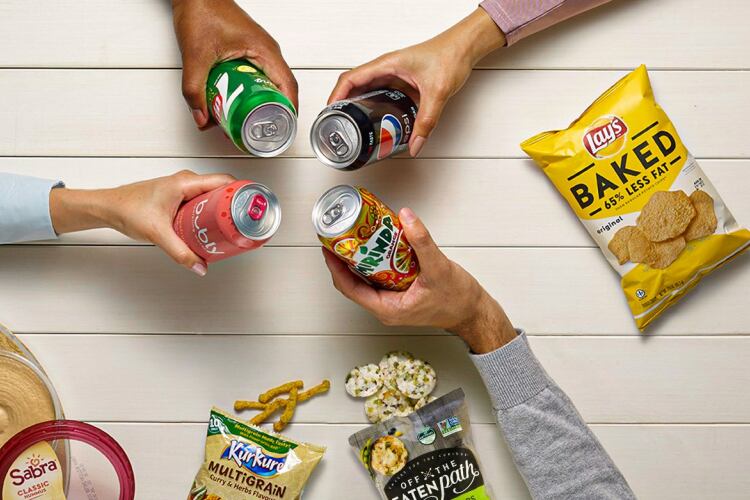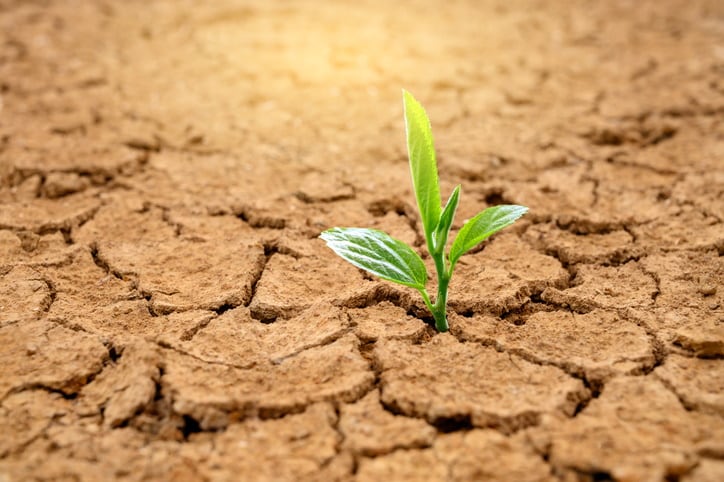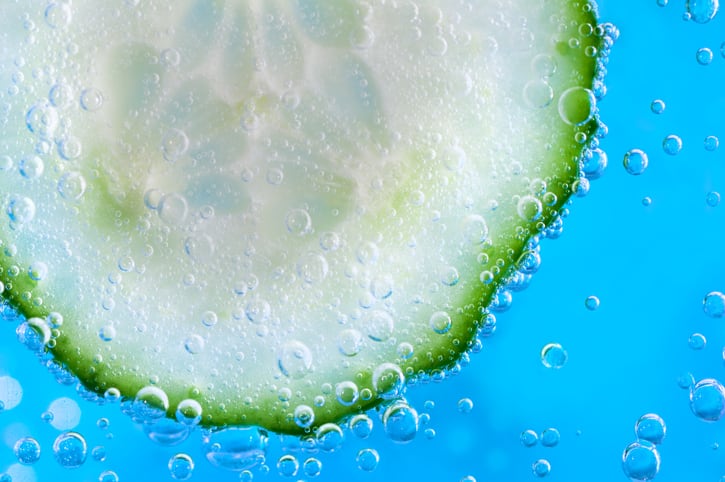PepsiCo wants to define how it creates growth and value through the positive change it can support for planet and people. This evolving understanding of the role business must play in environmental and social issues to secure future prosperity and profitability is at the heart of its recently launched pep+ strategy.
According to the beverage-to-snacks giant, pep+ will guide the ‘transformation’ of its business operations, from ingredient sourcing and production to supporting consumers make choices that are ‘better for themselves and the planet’.
“pep+ is the future of our company – a fundamental transformation of what we do and how we do it to create growth and shared value with sustainability and human capital at the centre,” Ramon Laguarta, PepsiCo’s Chairman and CEO, said when he announced the new direction earlier this month.
Laguarta was clear: pep+ represents the right thing to do for people and planet – but also the right thing to do for PepsiCo’s business and brands.
“It reflects a new business reality, where consumers are becoming more interested in the future of the planet and society,” he insisted.
“pep+ will change our brands and how they win in the market. For example, imagine Lay’s will start with a potato grown sustainably on a regenerative field, and then be cooked and delivered from a Net-Zero and Net Water Positive supply chain, sold in a bio-compostable bag, with the lowest sodium levels in the market. That’s a positive choice. That’s the best tasting, #1 potato chip of the future. That’s how pep+ will be better for people, for the planet, and for our business. Now, imagine the scale and impact when applied to all 23 of our billion-dollar brands.”

Galvanizing action for sustainable growth
pep+ draws together a number of existing commitments with the aim of galvanizing action around these objectives and increasing engagement with external stakeholders.
“Sustainability has been at the core of PepsiCo as a business for many years. Our recent pep+ announcement is not only about new commitments, but about emphasising the fundamental, central role that sustainability will play in our business. The pep+ strategy puts sustainability at the front of our growth agenda whilst creating value for our shareholders and stakeholders at the same time,” European sustainability chief Chris Daly told us.
“We believe that the business of the future is one that provides value for all stakeholders and operates within planetary boundaries. We understand that we need to be a resilient business, we need to grow permissibly, and the pep+ announcement is about that overarching transformation as a business.”
Internally, Daly believes PepsiCo has already placed this agenda front and centre. pep+ offers the opportunity to communicate these priorities and increase engagement with external stakeholders, he suggested. For the kind of transformation PepsiCo envisions, collaboration will be crucial, the sustainability expert suggests.
“We now want to share that vision with our supply chain, with our retail partners and with our loyal customers. All our external stakeholders need to be engaged with us to make this transformation possible.
“The solution to a more sustainable future for our planet is about working together, which is why pep+ is about positive solutions across the full value chain. Consumers are demanding much more from companies like ours and they have higher expectations. They have never been more aware of the impact of their choices- both for themselves and for others. By becoming better ourselves, we can not only meet the needs of consumers– we can be both a force for good and a successful, resilient business.”
PepsiCo’s pillars of positive action
PepsiCo has designed pep+ around three key pillars, drawing together various time-bound goals under a single framework.
The first plank in PepsiCo’s strategy is ‘positive agriculture’. The company has set the target to support the transition to regenerative agriculture across land that is equivalent to the company’s entire agricultural footprint, approximately seven million acres. It has also outlined plans to ‘sustainably source’ key crops and ingredients and improve the livelihoods of more than 250,000 people in its agricultural supply chain.
In Europe, PepsiCo has already made progress on these targets through efforts like its use of precision agricultural technology and fertiliser innovation. In the UK, for instance, the group is trialling a project to convert waste potato peelings into low-carbon, nutrient rich fertiliser. An initial pilot resulted in a 70% reduction in emissions from growing potatoes. In 2022, the company will add more European markets to the trial.

The company’s second pillar, ‘positive value chain’, encompasses its targets to achieve net-zero emissions by 2040 and become net water positive by 2030. Packaging is also an area where the multinational is innovating to drive change. The company has a global goal to cut virgin plastic across its portfolio by 50% by 2030.
Again, progress against this agenda has already been made in the European region. Denmark and Finland recently announced they will join another nine Europe markets to switch to 100% recycled plastic bottles for brand Pepsi by 2022. This follows a similar move for other brands last year, including Lipton Iced Tea.
PepsiCo flagged its continued support for ‘well-run, industry-led Deposit Return Schemes’ in many European markets, to enable over 90% collection of beverage packaging, and Extended Producer Responsibility schemes. Meanwhile, the company is participating in the next phase of the Holy Grail digital watermarks initiative, which aims to progress sorting and recycling technologies. Trials will take place on PepsiCo’s food packaging in France and Germany next year.
‘Positive choices’ is how PepsiCo has framed the third pillar of pep+, where the focus is on product and innovation. The company wants to offer consumers more choices that are better for people and the planet.
Innovating for people and planet
So, how will PepsiCo’s sustainability ambitions shape its innovation priorities?
‘Positive choices’ can be offered, the company believes, by incorporating more diverse ingredients into new and existing products. It said these efforts will prioritise chickpeas, plant-based proteins and wholegrains.
The group also plans to expand its position in the nuts and seeds category. PepsiCo is already the global branded leader, including leadership positions in Mexico, China and ‘several’ Western European markets. The snacks giant intends to build on this platform for future growth.

Reformulation – reducing added sugars and sodium in particular as well as cooking offerings with healthier oils – will also continue to play an important role. In Europe, the company has already committed to reduce the average level of added sugars in its soft drinks by 50% and build a $1bn portfolio of snack products rated B or better on the Nutri-Score scale by 2030.
PepsiCo also believes there is room to innovate around business models that require ‘little or no single-use packaging’. The company pointed to its SodaStream business as an ‘icon of a Positive Choice’. Already sold in more than 40 countries, Soda Stream is bringing PepsiCo flavour options to 23 markets and its Professional platform will reach into functional beverages and reach more than ten additional markets by the close of 2022. The brand has set a target to help consumers avoid more than 200 billion plastic bottles by 2030.
Enabling positive choices is also about communicating them. PepsiCo said it also wants to increase transparency and revealed it will participate in the front-of-pack environmental scoring project led by Foundation Earth. The project is aimed at assessing the ability of different labelling schemes to promote more sustainable buying choices for consumers, as well as driving environmental progress for food producers.
Supporting a cultural shift through pep+
Daly is optimistic about the impact that pep+ will have on PepsiCo’s business, suggesting it will support a cultural shift that ‘prompts us to think about things differently’.
“We have a much better understanding of the world around us and our role in the next few years and pep+ has created a shared vision that our employees and those in our value chain can all work towards. With this shared mindset, we will have greater impact, and as a result we can create stronger connections with our customers, stronger communities and stronger commitments with our associates, which will lead to being a better - and sustainably profitable - business overall,” he claimed.
Much of this effort is about supporting a business shift already taking place within PepsiCo’s own organisation, that has seen sustainability become embedded in each business function, from R&D to procurement. It’s a change that has been ‘happening for some time now’, Daly reflected.
“Sustainability is no longer an agenda which is run by a separate, stand-alone team, but it is an end-to-end business transformation that is filtered across the wider organisation in Europe, and beyond. We’re placing the responsibility for the delivery of this agenda across all functions, including R&D, procurement, but also sales, marketing, logistics. All are implicated. All are engaged.”




